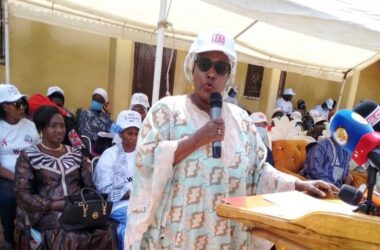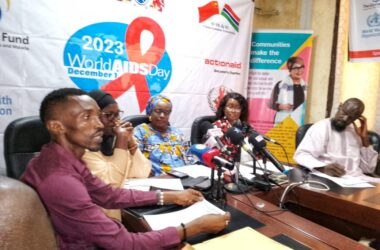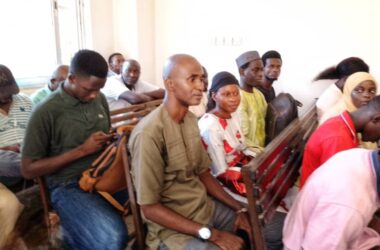By Kemo Cham
A new initiative aimed at boosting medications for the world’s poor was unveiled today, Wednesday, January 20, 2010, according to a press release obtained by Jollof News from the Council on Foreign Relations in New York. GlaxoSmithKline (GSK) announced a series of measures it has identified which will target further transforming its approach to diseases that disproportionately affect the world’s poorest countries, including Africa. The announcement, made by GSK’s Chief Executive, Andrew Witty, represents a fulfilment of commitments made last year ‘‘to work in partnership, expand access to medicines and encourage new research into neglected tropical diseases.’’ In a statement delivered at the Council on Foreign Relations in New York, according to the press release, the GSK boss said that since he assumed leadership of the company he has directed focus on changing its business model in the aim of improving on performance, but that ‘‘equally important is the imperative to earn the trust of society, not just by meeting expectations but by exceeding them.’’ ‘‘We want to be a company that is truly a partner in addressing the healthcare challenges in the world’s poorest countries, no matter how difficult they are, he added, describing GSK as ‘‘a restless company that is never satisfied with what it has achieved, but always looking for ways of doing more.’’ The measures announced by the company, described as an ‘open innovation’ strategy, entails the creation of an ‘Open Lab’, established with $8m seed funding for new research; 13,500 malaria compounds to be made freely available;  various new collaborations to share intellectual property for neglected tropical diseases; as well as a pledge to create sustainable pricing model for the world’s most advanced malaria candidate vaccine. The initiative also entails a GSK African Malaria Partnership awards for new grants worth $2.5m. ‘‘Today we are characterised by a determination to be more flexible, open and willing to learn. We are working with world-class partners to find new business models to expand access to medicines and deliver unique solutions in all the communities where we work,’’ Witty said. GSK has the capability to make a difference and a genuine appetite to change the landscape of healthcare for the world’s poorest people.” The initiative has already attracted thumbs-up from a wider sector, including one of GSK’s partners, Medicines for Malaria Venture (MMV), whose Chief Scientific Officer said in a statement that the initiative has “the potential to dramatically alter the way the world approaches research and development for neglected diseases.’’ This initiative will certainly receive a welcoming gesture here in Africa, where excessively stretched budgets haven’t been sufficient enough to cater for what is said to be the most significant killer disease, especially among children, Malaria.
various new collaborations to share intellectual property for neglected tropical diseases; as well as a pledge to create sustainable pricing model for the world’s most advanced malaria candidate vaccine. The initiative also entails a GSK African Malaria Partnership awards for new grants worth $2.5m. ‘‘Today we are characterised by a determination to be more flexible, open and willing to learn. We are working with world-class partners to find new business models to expand access to medicines and deliver unique solutions in all the communities where we work,’’ Witty said. GSK has the capability to make a difference and a genuine appetite to change the landscape of healthcare for the world’s poorest people.” The initiative has already attracted thumbs-up from a wider sector, including one of GSK’s partners, Medicines for Malaria Venture (MMV), whose Chief Scientific Officer said in a statement that the initiative has “the potential to dramatically alter the way the world approaches research and development for neglected diseases.’’ This initiative will certainly receive a welcoming gesture here in Africa, where excessively stretched budgets haven’t been sufficient enough to cater for what is said to be the most significant killer disease, especially among children, Malaria.














